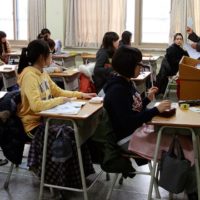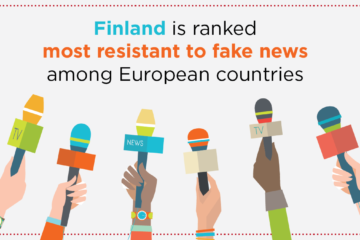Singapore to Teach Empathy, Morality to Young Students Via Computer Game

The Ministry of Education in Singapore has developed a computer game to help fourth to sixth grade students develop key social and emotional competencies like empathy, morality, and respect. It is being piloted this school year as an element of the required Character and Citizenship Education curriculum. As part of the virtual gaming experience, students respond to situations they might encounter in school such as helping a new classmate or managing conflict during group work. Teachers then use the student responses to structure follow-up class discussions and targeted learning activities as needed. Read more in The Straits Times here.
All Textbooks Will Be Digital in Japan
Japan’s education ministry will move to all digital textbooks over the next several years. Starting next year, all texts for English classes in fifth grade and up will be digital. These textbooks will have text-to-speech functions to help students with pronunciation and improving listening skills in English. This will be followed by a shift to all digital textbooks in math classes in 2024. The ministry has yet to decide when the use of digital textbooks will start for other subjects. As is the case with paper textbooks, state funding will cover the costs of digital textbooks at no charge to students. Japan has already rolled out a program to provide each elementary and junior high school student with a digital device. The ministry plans to offer support for teachers as they transition to digital books, and it will discuss ways to evaluate the effectiveness of digital textbooks as the program moves forward. Read more at Japan Times.

As Student Enrollment Declines, Korea Reduces Teacher Workforce
For the first time, the Korean government will reduce the number of public school teachers. While not formally announced yet by the Ministry of Education, the government budget for fiscal year 2023 plans for almost 3,000 fewer teachers. The downsizing comes in response to a dramatic decline in the population of school-age children. According to the Korean Education Statistic Service (KESS), there were 5.9 million students in 2022, compared to more than 7.3 million students just ten years ago. Teacher groups reacted negatively to the news. One provincial Teacher Association issued a statement that said, “We strongly believe the number of public school teachers should increase drastically to offer personalized education to each student and to guarantee the right to learn of students who need special education.” For more, see The Korea Times.

Estonia to Raise Teacher Salaries by Over 20 Percent

Estonia’s national budget for 2023 includes funding for a 20 percent raise in teacher salaries. Teachers’ average salary will be €2,048 (US$2016) per month from next year, and the minimum monthly wage will be €1,798 (US$1769). The raise follows protests over salaries amid rising inflation and continuing shortage of personnel. Education Minister Tonis Lukas said: “It is very important that teachers are valued, so that we can be sure of the economic foundation for the future, as well as for an integrated and peaceful society.” He also said teacher workloads will be more flexible going forward to ensure the work of teachers is highly valued. In August, the Ministry also announced that preschool teachers would be paid at the same level as elementary teachers. For more about the salary increase, see ERR News.




